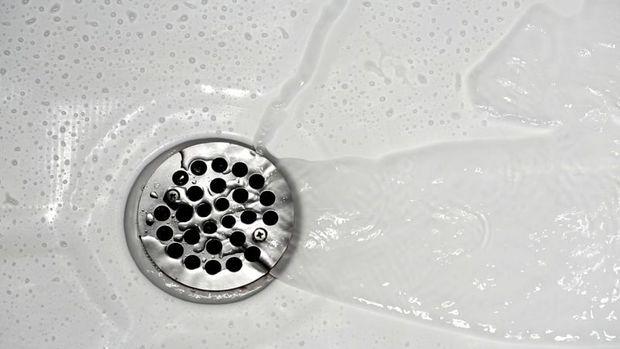On Monday, September 25, the Baltimore City Department of Public Works announced that a "fatberg," a congealed lump of fat, wet wipes, and other items that do not break down, was discovered in Baltimore's
sewer systems. This fatberg is located in a midtown sewer main between Baltimore Penn Station and the 1700 block of Charles Street. On September 21, the blockage caused a dry-weather sewer overflow which discharged nearly 1.2 million gallons into the Jones Falls at North Charles and West Lanvale Streets. This was the second time in two weeks that the fatberg caused a sewer overflow, which is not good news for the waterways around Baltimore.

According to the Baltimore City Department of Public Works (DPW), engineers sent a a machine with a closed-circuit television camera into the sewer, and soon discovered the walls of the sewer pipe were caked with congealed fats, oils, and grease (FOG). Unfortunately, as they were working in the pipe a backup occurred and led to a sewer overflow.
The buildup of FOG inside the pipe was so thick that it slowed sewer water moving through that area. Engineers estimate that 85 percent of the pipe, which is 24 inches across and more than 100 years old, was blocked. This resulted in sanitary sewer overflows happening underground, in a structured overflow that was designed more than 100 years ago as a sort of pressure-release valve in the event the sewers backed up.
The overflow is diverted into the stormwater system and then into the Jones Falls. The structured overflow, in the 1700 block of Charles Street, and a handful of others like it will be closed once a project to eliminate a restriction at the Back River Wastewater Treatment Plant is completed in late 2020."
The DPW has a FOG program in effect which includes monitor of food service establishements that discharge wastewater laden with fats, oils, and grease. These establishments must have a valid wastewater discharge permit and have functioning grease control devices, among other requirements, in order to be in compliance with the FOG program.
Private residents, while not subject to the same regulations as food service establishments, should follow
these steps to keep fats, oils, grease, and non-flushable items out of the sewer system. This will hopefully prevent costly sewer overflows in the future, and it will be better for all of us and the Bay.
- Do not put fats, oils, and grease down the drain.
- During food prep and cleanup, poor unused grease into a container. Once it solidifies, put it in the trash.
- Do not flush "flushable wipes; put them in the trash instead. Wet wipes don't break down in water and create sewer blockages.
- The only items that should be considered flushable are bodily waste and toilet paper.
 According to the Baltimore City Department of Public Works (DPW), engineers sent a a machine with a closed-circuit television camera into the sewer, and soon discovered the walls of the sewer pipe were caked with congealed fats, oils, and grease (FOG). Unfortunately, as they were working in the pipe a backup occurred and led to a sewer overflow.
According to the Baltimore City Department of Public Works (DPW), engineers sent a a machine with a closed-circuit television camera into the sewer, and soon discovered the walls of the sewer pipe were caked with congealed fats, oils, and grease (FOG). Unfortunately, as they were working in the pipe a backup occurred and led to a sewer overflow.